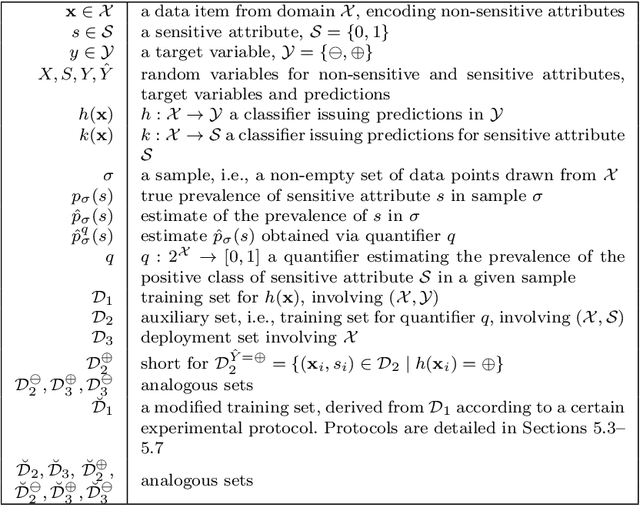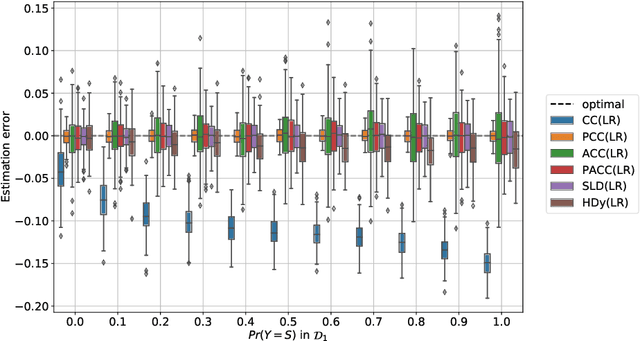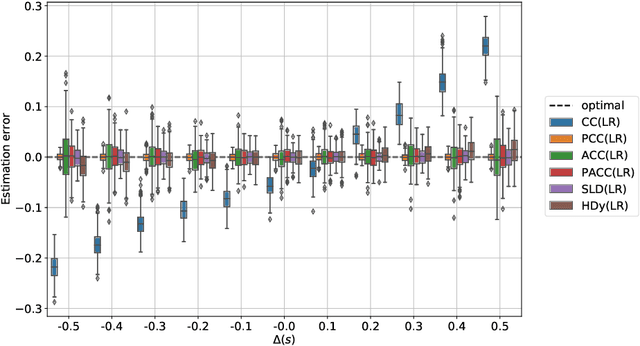Measuring Fairness under Unawareness via Quantification
Paper and Code
Sep 17, 2021



Models trained by means of supervised learning are increasingly deployed in high-stakes domains, and, when their predictions inform decisions about people, they inevitably impact (positively or negatively) on their lives. As a consequence, those in charge of developing these models must carefully evaluate their impact on different groups of people and ensure that sensitive demographic attributes, such as race or sex, do not result in unfair treatment for members of specific groups. For doing this, awareness of demographic attributes on the part of those evaluating model impacts is fundamental. Unfortunately, the collection of these attributes is often in conflict with industry practices and legislation on data minimization and privacy. For this reason, it may be hard to measure the group fairness of trained models, even from within the companies developing them. In this work, we tackle the problem of measuring group fairness under unawareness of sensitive attributes, by using techniques from quantification, a supervised learning task concerned with directly providing group-level prevalence estimates (rather than individual-level class labels). We identify five important factors that complicate the estimation of fairness under unawareness and formalize them into five different experimental protocols under which we assess the effectiveness of different estimators of group fairness. We also consider the problem of potential model misuse to infer sensitive attributes at an individual level, and demonstrate that quantification approaches are suitable for decoupling the (desirable) objective of measuring group fairness from the (undesirable) objective of inferring sensitive attributes of individuals.
 Add to Chrome
Add to Chrome Add to Firefox
Add to Firefox Add to Edge
Add to Edge